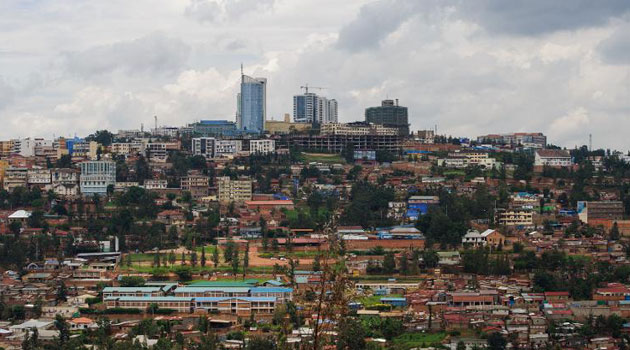
Rwanda also said it had “sought explanation” from London following the arrest of intelligence chief Karenzi Karake, according to reports in Kigali/AFP
“Western solidarity in demeaning Africans is unacceptable!!” Foreign Minister Louise Mushikiwabo said on Twitter, saying the arrest was a conspiracy by those who deny Rwanda’s 1994 genocide.
“It is an outrage to arrest Rwandan official based on pro-genocidaires lunacy!” she added.
Rwanda also said it had “sought explanation” from London following the arrest of intelligence chief Karenzi Karake, according to reports in Kigali.
“We are handling the matter with the UK Government. They have better details on this evolving situation,” Minister for Justice Johnston Busingye said, according to Rwanda’s New Times newspaper.
Karenzi had been “on official duty in London for one week”, the report added.
A British Foreign Office spokesman said they were informed by London’s Metropolitan Police on June 20 “that they had arrested general Emmanuel Karenzi Karake.”
British police are understood to have been carrying out a European arrest warrant issued by Spain in 2008, but Busingye was dismissive of the legal basis of the warrant.
“I would be surprised if it is one the UK is acting on. We will contest in the courts. We have sought explanation from the UK on this matter as well,” Busingye added.
Mushikiwabo called the warrant “preposterous”.
Karake, known as KK, is a former deputy chief of the United Nations-African Union peacekeeping force in Sudan’s war-torn Darfur region.
Human Rights Watch criticised his appointment in the peacekeeping mission saying Karake was responsible for the killings of civilians in the town of Kisangani, Democratic Republic of Congo, in June 2000.
Karake is part of an exclusive circle of top military officers in the former Rwandan Patriotic Front (RPF) rebel movement which brought an end to the 1994 genocide.
The RPF ethnic Tutsi rebel force ended the genocide by Hutu extremists that left an estimated 800,000 mostly Tutsis dead.
Like others, Karake’s fortunes have risen and fallen under President Paul Kagame’s rule. He was a close friend of Patrick Karegaya, a former Rwanda spy chief who became a dissident and was murdered in a South Africa hotel in late 2013.
In 2010 he was placed under house arrest for misconduct but was later released.
The indictments issued in February 2008 by Spanish judge Fernando Andreu have been controversial and criticised as politically-motivated. Andreu accused Karake and 39 others of ordering revenge massacres of ethnic Hutus in the wake of the 1994 genocide as well as the murder of three Spanish aid workers for Medicos del Mundo.
A 2008 diplomatic cable sent from the US embassy in Kigali and released by WikiLeaks dismissed the Spanish indictments as “outrageous and inaccurate”.
“The Spanish indictment of 40 Rwandan military officers offers an unrecognizable version of some of the most painful and violent episodes in Rwanda’s history,” said the cable which described the allegations as “a bloated political tract, sloppily organized and endlessly repetitive”.









































